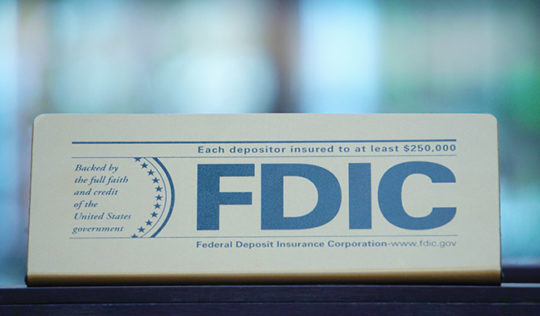Let’s face it. Purchasing life insurance coverage is not as exciting as, say, jet skiing or line dancing or nightclubbing or whatever else you might be making with your time.
It’s not even as fun as binge-watching a program on Netflix.
But if you’re going to start adulting, it’s time to believe about life insurance coverage. The first problem you’ll face? The topic is so intimidating.
Almost right away, you’ll find yourself bombarded with unknown jargon like “term life,” “money worth,” “universal life,” “death advantage,” “entire life,” “annual renewable term,” and on and on and on.
It’s enough to make you shake your head and leave.
However, do not leave. Instead, have a look at our easy-to-understand guide on how to make one of the biggest decision you’ll be confronted with:
Should you get a term or universal life insurance?
What is Term Life Insurance Coverage?
Term life insurance coverage is exactly what it sounds like. You’re buying life insurance for a particular “term” or duration of time– generally 10, 15, 20 or thirty years.
This is the easiest, least expensive and most popular type of life insurance policy.
Let’s state you’re a 30-year-old woman and sign up for a 20-year term, $500,000 life insurance coverage policy. That could cost you as low as $ 17.25 per month.
If you die prior to you’re 50, the policy pays your family a “survivor benefit” of $500,000 to offset your lost income.
If you survive that long– congratulations!– you’ll pay fairly budget-friendly premiums for 20 years till the policy ends. Then you get absolutely nothing, however, hey, you live.
If you want to continue the protection beyond that, you’ll need to pay an adjusted, and greater premium since you’re way older now, and closer to death. Cheers!
What is Universal Life Insurance?
Universal life insurance is an entirely different ball of wax.
The downside is it’s more complex and more expensive. The benefit? It’s more long-term and more versatile.
Universal is a sort of “irreversible insurance coverage.” It’s sort of a hybrid in between a life insurance policy and a cost savings account.
A universal policy has a money value that builds up as long as you keep paying premiums. Some of the loans from your premiums gets funneled into a tax-deferred savings account, which you can borrow against as it grows.
Instead of paying the same set premium monthly, you can pay as much as you like– as long as you meet a minimum level.
One benefit to all this is your family will absolutely receive some cash when you pass away, as long as you keep paying those premiums. Under no circumstances do they get absolutely nothing.
Sounds excellent, does not it? Nevertheless, you need to know that universal is a method, which more pricey than term life insurance coverage.
“Both term and long-term insurance are designed to meet different requirements,” states Rick Peereboom, a seasoned financial advisor at Investors Group Financial Services in British Columbia. ” I describe term insurance coverage as ‘If you die’ and irreversible as ‘When you pass away.'”
We’ll review the pros and cons of each alternative.
However first, a word about why you ought to look into life insurance in the very first place.
It’s Not For You. It’s For Your Family.
At its core, life insurance coverage has to do with taking care of your enjoyed ones, protecting them, and making sure they’ll be all right if you suddenly leave them behind.
Fair warning: Once you start the procedure of getting life insurance, you may stall since the whole thing appears like such a discomfort. You figure it’ll take weeks to get approved, and will require stacks of documents and signatures.
That’s the stereotype, however, it’s really a lot simpler these days.
Business like Sanctuary Life, for example, provide more streamlined methods to get life insurance coverage.
Unlike traditional life insurance coverage companies, these online-only platforms offer immediate choices on applications for coverage. Some certified, healthy applicants approximately the age of 45 may even get to avoid the medical examination most suppliers need.
In the old design, the business would require you to deal with an insurance agent and scan and fax documents to them. Then, you ‘d possibly need to wait weeks to hear back on whether or not you’re approved.
Term Life vs. Universal Life Insurance coverage
So, should you choose term or universal life insurance? Let’s ask some industry veterans.
“Anyone who can carry out easy math will rapidly discover that term is always the very best option,” asserts Paul Ruedi, CEO of Ruedi Wealth Management in Champaign, Ill.
Wow! That’s a vibrant take!
Now, the majority of advisors will not state it that definitively.
However, it holds true that if you’re an Ordinary Joe or Jane, a lot of experts are going to recommend you to pick term life insurance instead of universal.
“It’s always best to sit down with an agent to discuss your specific needs,” says Clifton Smith, an insurance agent with Farm Bureau Insurance Coverage of Tennessee. “However if you can’t, utilize the old adage: Term policies are best for individuals with jobs. Long-term policies are best for individuals in diapers (children and seniors).”
That’s because Smith discusses, these 2 kinds of policies really are designed for different purposes.
- If you pass away prior to your time, term life insurance coverage is excellent for settling your mortgage and vehicle loan, for changing your income, or for sending your kids to college. It might make it possible for your partner to keep residing in the same house and raising your kids with the same lifestyle.
- Universal life is for “permanently protection”– final expenses, estate taxes, or leaving money to your children.
“While universal life does have cash worth, it must never ever be considered as an investment,” Smith says. “It’s more of a rainy day savings fund if all other opportunities have actually been tired.”
In selecting which type of life insurance makes one of the most sense for you, it is very important to believe about what you’re attempting to accomplish, states Kerri Moriarty, head of development at Boston financial tech start-up Cinch Financial.
For many, term insurance coverage is enough because you simply desire to make sure your household can continue their lifestyle in the occasion of your death. And you can develop a tradition for your children in more effective methods than universal life insurance coverage– possibly through real estate, investments or retirement accounts.
Here’s Moriarty on term insurance:
“Since term insurance is just created to last for a time period, it’s way less expensive than universal life insurance coverage. It’s a little scary to think about, but the factor term insurance is so inexpensive is because it’s highly most likely that you won’t pass away throughout the term, so the insurer will not need to pay the survivor benefit to your beneficiaries.
“Generally, you’ll end up paying the insurance business your monthly premium over those 20 years and you’ll never wind up seeing a concrete benefit– but that’s an excellent thing.
“It indicates you’re not dead and you had the comfort that your loved ones were secured over that 20-year time frame.”
The Pros and Cons of Universal Life Insurance Coverage
Now, if you’re dead set (pun intended) on having your family get a financial advantage when you die, you might desire to think about universal life insurance.
But you ought to know when it pertains to insurance coverage, universal life insurance coverage is far more pricey.
This is because the insurer knows there’s a 100% opportunity that it’ll pay out that death advantage to your heirs when you die– whether it occurs tomorrow or 40 years from now.
How much more expensive?
“A healthy 30-year-old male might anticipate paying roughly $300 a year for $300,000 of term life insurance,” says individual financing site The Balance. “To get the same amount of protection under a cash worth policy would cost over $3,000.”
Financial advisors state there are more efficient ways to sock away loan for your survivors.
“Do not be offered on permanent insurance for the investment or cash-value feature,” recommends personal finance site Investopedia. ” For the first two-to-10 years, your premiums are paying the agent’s commission anyhow. Many policies don’t begin to build decent money value up until their 12th year, so ask yourself if the feature is really worth it.”
Who purchases universal life?
Normally, it’s wealthy people who begin households later on in life and who want the tax advantages that come with the tax-deferred savings.
Others might want the flexibility it manages: You can make higher premium payments when you’re flush with money, or pay less when cash is tight.
A 3rd Alternative: Whole Life Insurance
Simply to make matters more complicated, there’s actually a 3rd alternative to consider.
It’s called “whole life insurance.”
Similar to call life, “entire life” is precisely what it seems like: It’s indicated to ensure you for your entire life.
It’s like universal life insurance coverage, other than it has actually fixed premiums and a fixed death benefit. You pay the very same on a monthly basis, and your household gets the very same quantity of cash, anytime you pass away.
The advantage: There are no surprises. You understand precisely what you’re paying and exactly what you’re getting.
The drawback: It’s even more costly than universal life.
“The difference between universal and entire life frequently comes down to concerns about the policy’s warranties and versatility,” explains Neil Godsey, managing director at Los Angeles-based Wonder Mile Advisors.
“Usually, whole life policies use stronger guarantees in that if premiums are paid completely and on time, the death benefit is guaranteed to be paid at death and a certain minimum cash worth is ensured to build up gradually.”
Why Doing Your Research is So Essential
For more research study, Allstate provides an online calculator titled “Term vs. Universal Life Insurance coverage: Which Is Much better for Me?”
If you have more questions, get yourself some expert guidance. One size doesn’t fit all, and everybody’s finances are different.
Seek advice from an independent insurance coverage representative who isn’t fixed on selling you a specific item and who can evaluate which alternative is best for you.
“Asking ‘Term Life or Universal Life’ is just the start. There are a wide variety of concerns to be addressed by the customer prior to the response to this question ends up being obvious,” says Steven Schwartz, vice president of CENTER International Northeast, an insurance coverage brokerage in New York.
He added that an insurance agent should never offer you either sort of policy without very first knowing a lot about your monetary circumstance– “comparable to enabling a surgeon to operate on you having actually never ever asked you any case history, drug allergies or all other associated concerns.”















Comments